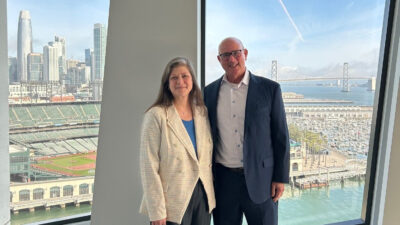BAC Poll: Millennials, Older Generations Divided Over Housing Problems, Solutions
Older Bay Area voters who have lived here the longest and own their home are far less likely to support building new housing compared with millennials (18-39), those who rent, and those who have lived here the shortest time and are feeling the worst pain from the region’s housing shortage and affordability crisis, according to Bay Area Council Poll results released today.
The poll found that 70 percent of millennials support building new housing in their neighborhood, compared with 57 percent of respondents aged 40-64 and a similar number aged 65 years and older. And while 76 percent of respondents who have lived in the Bay Area for five years or less and 75 percent who have lived here between six and ten years support building new housing in their neighborhoods, a much lower 55 percent of those who have called the region home for 20 years or more are willing to accept building more housing near them.
“We’re shutting the door on future generations—sons, daughters, grandchildren,” said Jim Wunderman, President and CEO of the Bay Area Council. “We need to do much, much more to make building housing easier, faster and less expensive. There’s no other solution to the scale of the problem. We’re starting to see signs that the message is getting through in Sacramento, and results like these can help us keep policy makers focused on the real problem of dramatically boosting housing supply. We also need local leaders to summon the political courage to reject entrenched and self-interested opposition to new housing.”
Read the topline poll results>>
Although there are clear generational differences over housing, there was also overall growing support for building new housing. The poll found 62 percent of respondents overall support building new housing in their neighborhood, up from 56 percent in 2014. Support for new housing was most pronounced in San Francisco, with 75 percent in favor.
Millennials are less satisfied with their current housing situation than older generations. The poll found that while 70 percent of respondents aged 40-64 and 78 percent of those 65 years and older are content with their current housing situation, just 56 percent of millennials are happy with their housing situation.
The poll found 40 percent of respondents say they are likely to move out of the Bay Area in the next few years, an increase from 34 percent in 2016. More than double that, or 86 percent, harbor concerns that their friends or family will not be able to find affordable housing in the Bay Area. Another 58 percent say they are concerned about being able to find an affordable place to live themselves. Millennials are the most likely to leave, with 46 percent eyeing the exits, compared to only 30 percent of those 65 and older who are considering bolting.
Meanwhile, older respondents and those who have lived here the longest appear to be enjoying more financial benefits from the rise in home prices than those who have arrived more recently.
The poll found 84 percent of those here for five years or less and 73 percent of those here six to ten years said they haven’t benefitted from the shortage-fueled run-up in prices. Among those who have lived here 20 years or more, a much smaller 59 percent say they haven’t benefitted. Those findings are not necessarily surprising given that home values and equity build over time, but in a similar question almost twice as many newcomers (62%) as old-timers (34%) said the housing shortage has hurt them personally.
The differences are a bit starker along generational lines, with 14 percent of millennials saying they have benefitted from the surge in home prices and 41 percent of respondents aged 65 and older saying high housing prices have been a financial boon.
“It used to be an American goal that we would provide a better life to our children,” said Wunderman. “I fear the sentiments discovered in this poll reflect a different mindset.”
With a historic housing shortage and growing employment pushing home prices and rents to at or near record highs, many of these findings will not come as a huge surprise. But they highlight the urgency of a problem that both state and local officials have failed to adequately address. The Bay Area is creating just one unit of housing for every eight jobs and state officials say we’re producing far less than half of the housing we need to keep pace with demand.
Almost across the board, the numbers paint a dark picture:
- 84 percent expect housing costs will continue to increase over the next two years
- 78 percent say they know someone forced out of the Bay Area in the past two years by high housing costs
- 66 percent don’t see themselves buying a home in the Bay Area in the near future, consistent with declining home ownership numbers statewide.
The poll found that 76 percent think the region’s housing shortage is threatening the Bay Area’s economy, which has led the state and nation in creating jobs and generating major revenue for public coffers.
The poll also highlights differences in attitudes between homeowners and renters, urban and suburban areas, by incomes, between counties, and a range of other criteria.
The 2017 Bay Area Council Poll, which was conducted online by Oakland-based public opinion research firm EMC Research from Jan. 24 through Feb. 1, surveyed 1,000 registered voters from around the nine-county Bay Area about a range of issues related to economic growth, housing and transportation, drought, education and workforce.





